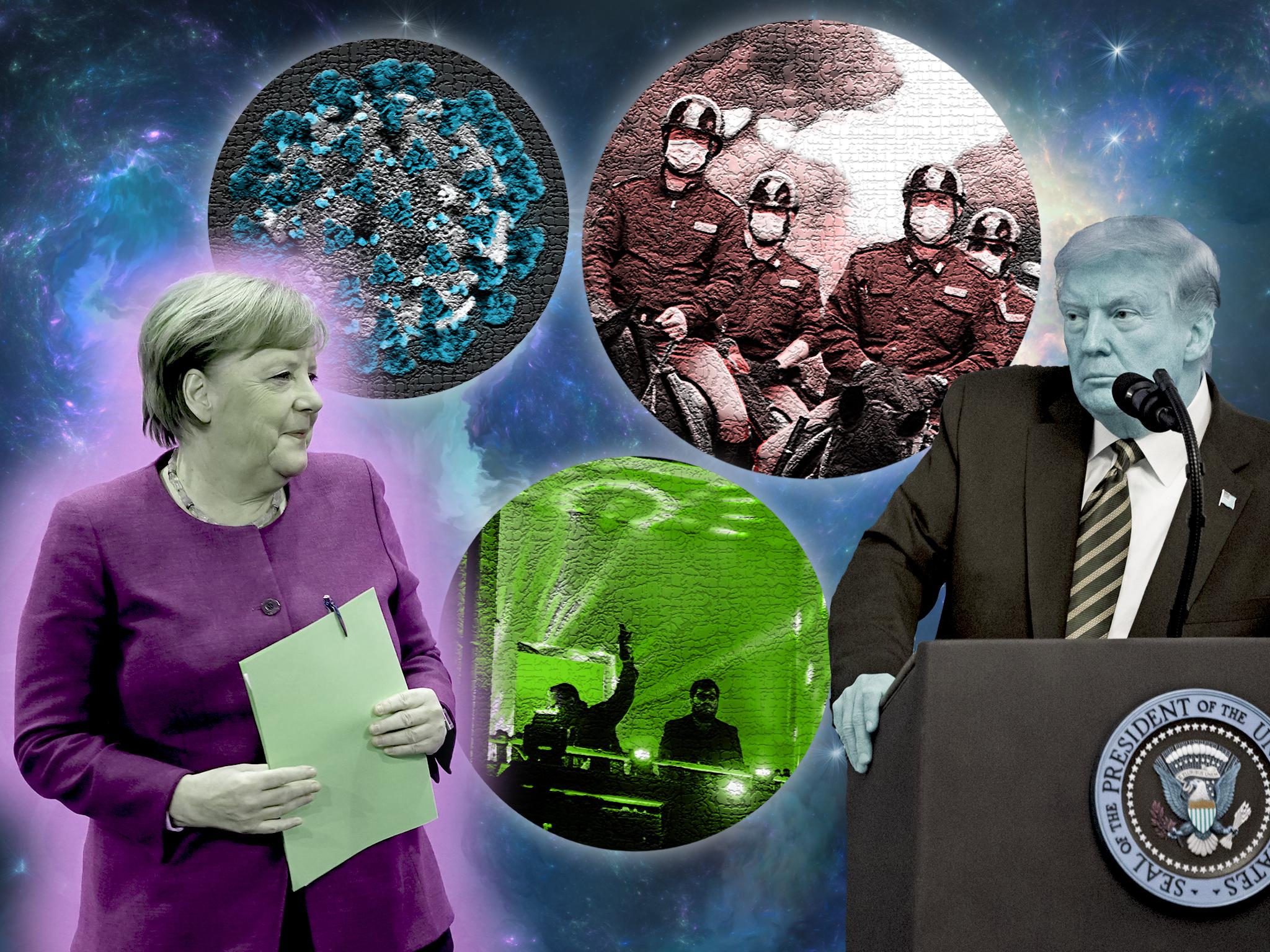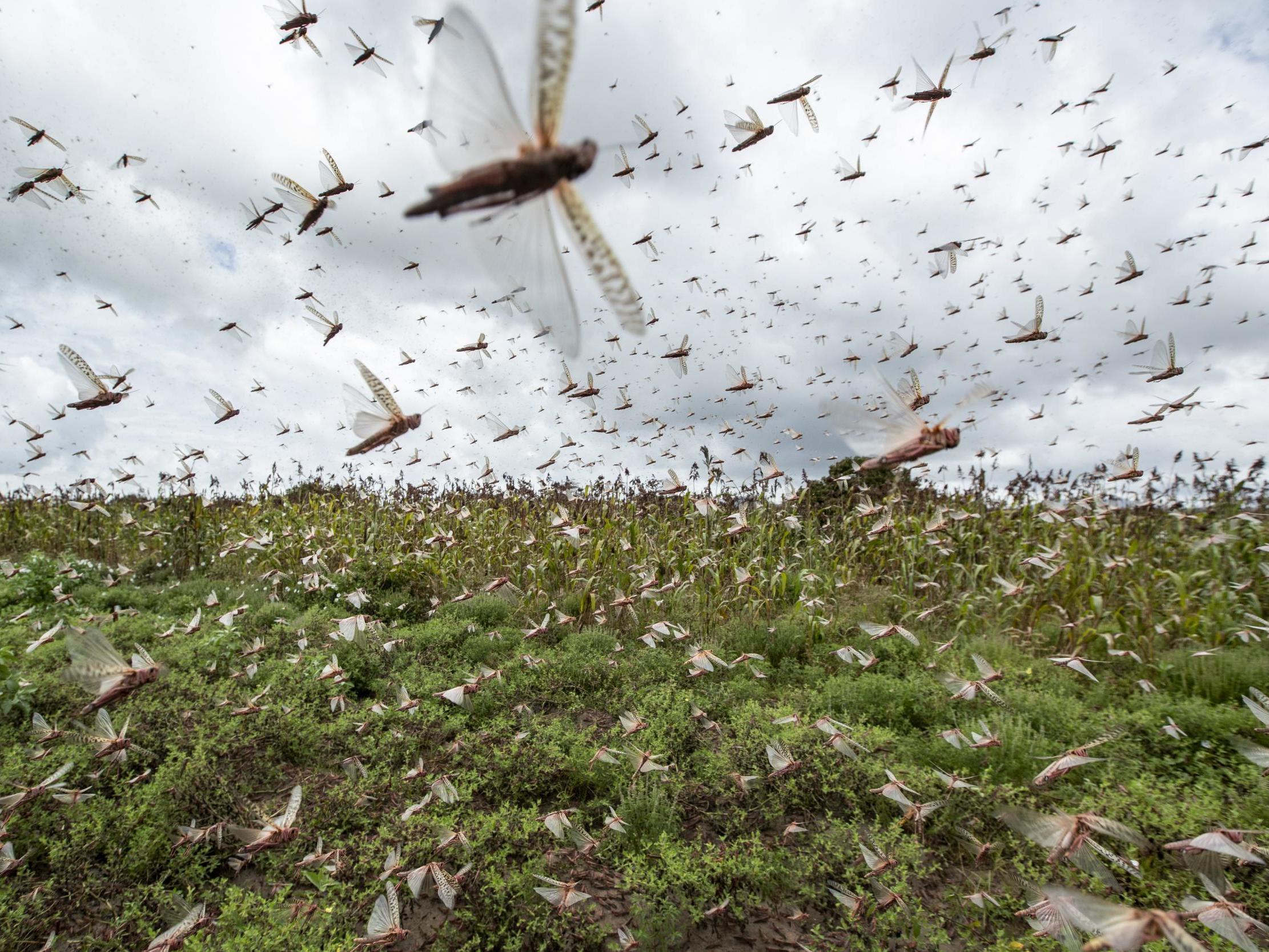‘All of Europe is dreaming of Merkel’: How coronavirus is affecting our dreams
Psychologists collecting people’s dreams during the pandemic share some of their strange discoveries with Adam Forrest


The coronavirus won’t leave us alone. Not content with stealing our waking thoughts, the illness has chased us into the dream world, haunting our sleep by appearing in a series of strange and often disturbing guises.
People all over the world have been reporting especially intense and vivid dreams, recalled with an unusual amount of clarity, since the beginning of the pandemic.
Dream researchers – fascinated by an event so huge it has embedded itself in the planet’s collective unconscious – are busy collecting all these virus-related reveries. And the sleep detectives have already spotted some interesting patterns.
There are the dreams about Covid-19 itself, in which the disease is transformed into swarms of flying insects and invisible monsters knocking people over. There are the lockdown dreams – the dreams about being stuck in bubbles and crowded spaces, and of illegal parties getting busted by the cops.
And there are the dreams about our political leaders, hushed and intimate conversations with heads of state. According to Deirdre Barrett, author of The Committee of Sleep, one politician in particular keeps popping up.
The Harvard Medical School’s assistant professor of psychology has gathered around 6,000 coronavirus dreams from more than 2,300 people all over the world for her database, and she is amazed by how often German chancellor Angela Merkel appears.
“I see Merkel in lots and lots of dreams, and not just the German ones,” says Barrett. “It seems like all of Europe is dreaming about Angela Merkel. Even in the UK, she crops up in more dreams than Boris Johnson.
“She seems to be a positive figure, someone who is trusted as leader. In half the dreams she is giving good advice. And in the other half the dreamer has information about the virus that they need to tell Merkel because they know she will really listen.”
Barrett says female politicians are generally appearing in Covid-19 dreams as the “good leader”, while male politicians – most notably Donald Trump – are appearing more often in the “bad leader” role.
Could these apparently maternal fantasies have arisen because the pandemic doesn’t demand a violent, war-like response? “It’s possible,” says Barrett. “I agree male figures have tended to be more associated with fighting off aggressors and females with healing or taking care of us. So it may well be a part of what’s going on.”
Barrett has also found that film stars and other celebrities are playing only bit parts in our hallucinatory slide-shows, perhaps because fear – and not desire – is dominating our brains right now.

This is not the first time writers and psychologists have attempted to analyse the disturbing impact of major crisis on a society’s dream life. In the 1960s, Charlotte Beradt wrote The Third Reich of Dreams: a collection of nightmares the German people described during the Nazis’ rise to power. The author, who called them “diaries of the night”, was interested in how quickly and deeply people absorbed the scale of the totalitarian threat during the early 1930s.
Inspired by Beradt’s book, Erin Gravely started collecting other people’s dreams on a website called I Dream of Covid. The San Francisco-based blogger says she was amazed at how the characters appearing in her own dreams were “meeting but not shaking hands, standing far apart from each other” soon after social distancing began.
“I would hazard to say that most of us in the US, though not all of us, are not navigating the same level of trauma under Covid-19 as those living under the Third Reich,” she says. “Still, these are highly unusual times. I was curious to know how the anxieties of the moment would translate to our dreams.”
Dream expert Patrick McNamara, professor of psychology at Northcentral University in San Diego, has been “bombarded” with emails about vivid dreams over the past couple of months.
He thinks the wave of nightmares and sleep disorders that were reported after 9/11 was “mild” compared to the coronavirus outbreak. If nothing else it shows how anxious we are right now, and how serious our subconscious senses this threat to be.
Lots of experts are pointing to one anxiety dream in particular as the pandemic archetype. Many have been bombarded with various kinds of “bugs” soon after their head hits the pillow, including flies, crickets or locusts.
“I had that dream myself – one where I was walking through a sea of flying insects,” says McNamara. He thinks it’s a way for us to get some kind of visual handle on “an ill-defined, almost invisible threat”.
“We used the REM stage phase of our sleep cycle to process intense emotions. So we’re doing what supposed to be doing – we’re trying to work through the tremendous amount of uncertainty we’re all living with.”

Sigmund Freud and his followers believed dreams represented repressed desires in disguise, a series of clues allowing them to unlock the mystery of childhood traumas. Artists too have been obsessed with the dream experience, assuming their own wibbly-wobbly adventures in the land of nod must have special and uniquely personal meaning.
Yet this pandemic may be powerful enough to shift our understanding towards dreaming as a more contemporaneous and collective thing than we realised – a warped mirror on the daytime world.
“Dreams are not just personal products. They’re cultural products,” says McNamara. “I do think it will change the way dreams are studied by sleep and dream scientists. I think we’ll be more aware that yes, dreaming is an intimate experience, but it’s also an experience shared by a group as well.”
Even if the ultimate purpose of dreaming remains an enigma, Barrett points out some dreams can still be really useful.
“I’m not one of the psychologists who think it’s an inherently wise mode of thought – but we do sometimes hit upon breakthroughs in the things we’re stuck on awake,” she says. “Dreams do seem to help you think outside the box.”
The psychologist cites the example of a young woman who told her about a very powerful lockdown dream. “This was someone who had not in her own life been paying attention to any of the prohibitions and had been partying as usual,” Barrett explains.
“She dreamed she was throwing a party and secret government agents stormed the party and shut it down. When she woke up it gave her a very strong sense of how serious this all was, and she hadn’t taken the whole thing seriously enough. Her waking mind had been in a sense of denial.”
Some coronavirus dreams can even be quite pleasant. I tell Barrett about one of my own recent dreams, in which I wandered around the rooms of a huge mansion before sitting down to play a grand piano.
“Yes, I’ve heard quite a lot of those – about people in big, beautiful, empty spaces,” she says. “They’re sort of escape dreams that seem related to Covid. But then you have lots of loneliness Covid dreams as well. One woman said she found herself on a one-person colony on Mars and lost contact with other people.”
The coronavirus clearly doesn’t care about boundaries and borders, so it’s no surprise to find it’s travelling with us on fantastical trips to other planets.
No doubt the virus will linger on in our imagination, active in the dreaming mind long after it is finally dispelled from the daylight world.
Join our commenting forum
Join thought-provoking conversations, follow other Independent readers and see their replies
Comments
Bookmark popover
Removed from bookmarks